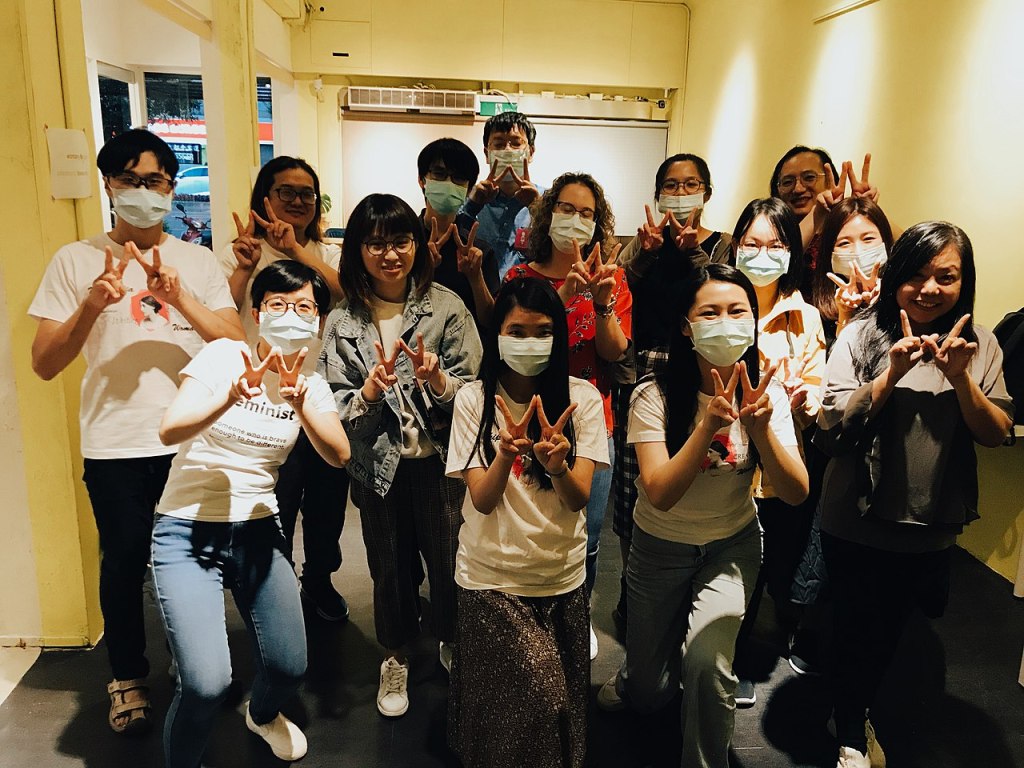In the next month, the Wikipedia Community in Taiwan dedicated to Women – the WikiWomenTW “Wiki’s Room” will celebrate its one hundredth monthly editing gathering. Sustaining a Wikipedia editing volunteer activity for eight years is no easy feat. How did they manage to do it? Let’s look back at the development of WikiWomen Taiwan!
Early Days
From 2015 to 2017, Wiki’s Room is in its early stages. The founding members actively recruited like-minded individuals interested in the female Wikipedia community. With the support of the Wikimedia Taiwan and the Women in Free and Open Source Software in Taiwan (WoFOSS), they jointly launched the first gathering of the WikiWomen, naming it “Wiki’s Room” for the Taiwan Wikipedia female community. This name was inspired by the quote from the English writer Virginia Woolf: “A woman must have money and a room of her own if she is to write fiction.” The aim was to provide a comfortable and free space for females to write together, thereby addressing the gender gap on Wikipedia. The WikiWomen Taiwan started holding writing gatherings in 2015 to develop editing skills of members, and by 2017, some members were able to independently teach newcomers.
Projects that WikiWomen been Through
During the monthly editing gatherings, members of WikiWomen discussed their editing topics wishlist, and planned suitable online and offline activities. Such as collaborating with other communities and organizations to edit Wikidata items about women who were victims of the White Terror, edited articles about gynecological diseases with the Wiki medical community. In addition, they collaborated with the Taipei Contemporary Art Center (TCAC) to edit articles about artists like Margaret Shiu and Hai-Ru Tsai.WikiWomen also offered Taiwanese language writing programs. For offline activities, it included taking trips together, participating in the Taiwan Pride Parade, and capturing Taiwan’s natural landscapes by taking photos to participate in the Wikipedia Loves Earth competition.
The most significant annual event, “Art + Feminism Editathon,” often in collaboration with organizations concerned with gender issues such as Womany and the Awakening Foundation. This event is open to people of all genders, and has produced numerous Wikipedia articles on gender-related topics. This year, they focused on BBC’s “100 Women” list, which showcases outstanding women in various fields.
Creating a Newcomer-Friendly Atmosphere
Winnie, the current lead organizer of “Wiki’s Room,” mentioned that when she participated in Taipei gatherings in the past, the presence of many experts made her hesitant to ask questions. Therefore, after becoming a member of the WikiWomen organizing team, she focused on creating a newcomer-friendly atmosphere. In every meeting, they set up a dashboard to help newcomers learn Wikipedia gradually and encouraged them to ask questions. They also have everyone introduce themselves at the beginning of the gathering to help newcomers quickly get along with the WikiWomen community.
Communication in the Era of Pandemic
Winnie recalled that when the COVID-19 pandemic hit in 2019, WikiWomen had to change to online gathering for nearly three years. While not being able to interact in person was disappointing, the warmth among the partners remained strong even through screens. Additionally, online gathering removed geographical barriers, unexpectedly attracting women outside the area of Taipei. Now that the pandemic is easing, WikiWomen plan to continue with a flexible approach, alternating between online and in-person gatherings.
Celebrating the One Hundredth Gathering!
All the accumulations from the past have shaped the current appearance of WikiWomen Taiwan, the “Wiki’s Room.” During the one hundredth gathering on November 4th, they will share their experiences and interesting stories of participants who attended WIKIMANIA in Singapore and the WikiWomen Camp in India. They will also provide delicious food and souvenirs of limited editions, with the hope of nurturing more Taiwanese WikiWomen editors who are willing to contribute and share. Always support them!

Can you help us translate this article?
In order for this article to reach as many people as possible we would like your help. Can you translate this article to get the message out?
Start translation


